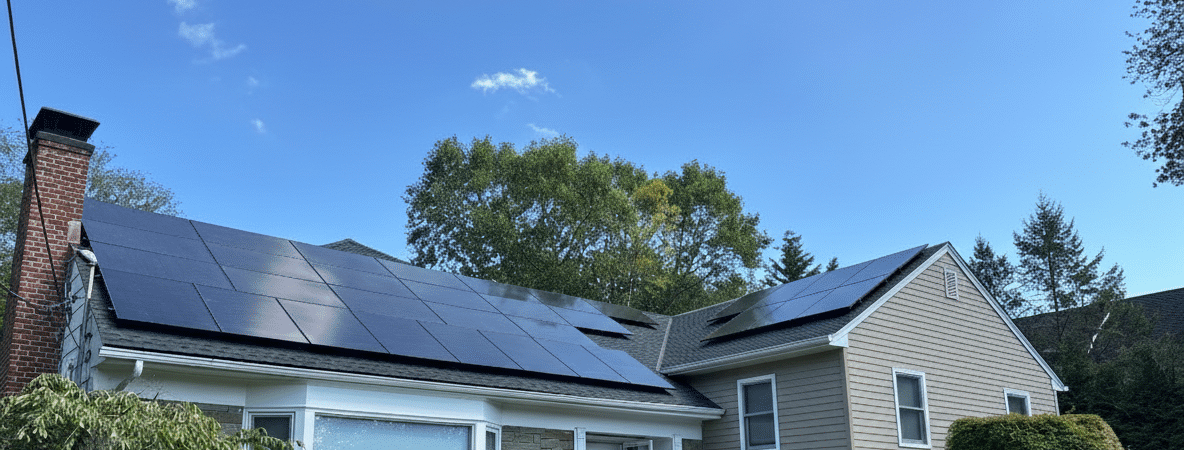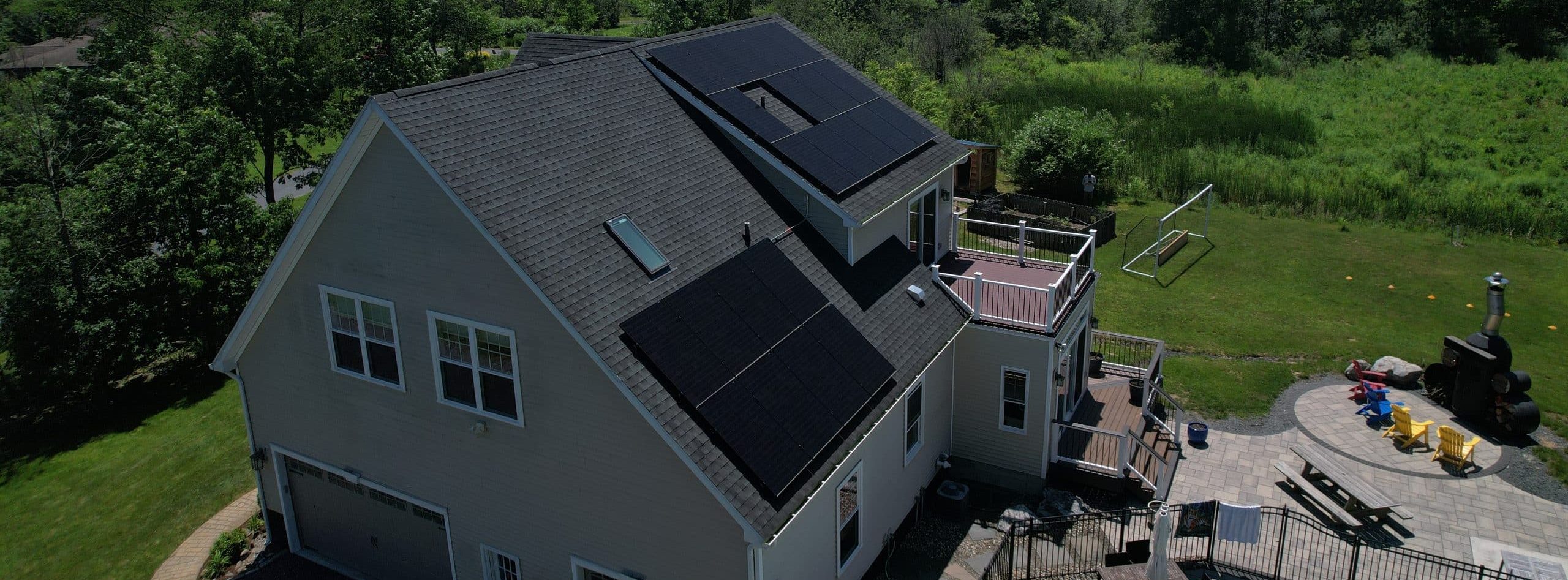It’s fall here in Rockland County, and winter is just around the corner. If you’re considering going solar, you might have questions about how well solar panels perform now that summer is over. Can they still supply the electricity your home needs? Is it worth it to install solar panels in the winter?
It’s true that the sun shines for fewer hours during the day and the angle of the sun is lower in the sky (factors that can impact the performance of solar panels in winter), but you can put your mind at ease by learning how well solar panels work even when the seasons change!
How does the cold affect electricity production?
It’s a misconception that solar panels in winter suffer a productivity loss because it’s not as hot. However, solar panels convert light into electricity, not heat, so it doesn’t matter how cold it becomes outside. Of course, some panels work better than others when the temperature goes up, but usually solar panels actually perform better in cooler temperatures than they do on blistering summer days.
When shopping for solar panels, look for the temperature coefficient rating. The rating might be -0.5%, meaning for each degree over the standard testing condition of 77 degrees F, the panel loses 0.5% efficiency. This means on a 90-degree day in July, the panel is 6.5% less efficient than when it’s 77 degrees outside.
The result of lost efficiency when it’s hot outside means your solar array could be just as productive at peak times on sunny winter days as they are on sunny summer days. Of course, a lower temperature coefficient rating is still important to keep productivity in the summer as high as possible.
How do solar panels in winter compare to summer?
Consider one example in which a solar array covers 60% of the electric bill in the summer and 90% of the bill in the winter. This is possible because although the number of solar energy production hours may be less this time of year, your electricity demand in the winter is much lower without running the air conditioner or central air.
Sizing your solar installation to cover closer to 100% of your electrical needs in the summer could result in excess energy production in the winter. Thanks to net metering, you can sell this energy back to the utility company. In New York, excess energy accumulates over the course of a year. You can choose to have your account’s pay period end at the height of summer, allowing you to cash out when electricity is sold at its highest rate.
Can solar panels be damaged by winter weather?
As long as you choose a high-quality brand, you don’t need to worry about your solar panels being harmed by high winds or heavy snow. One great brand you can trust is SunPower. These panels are constructed with a solid copper backing for superior strength against the elements. SunPower panels are installed in various climates around the world. They have even been used on an expedition to Antarctica! Clearly, there’s no reason to fear that a little wind and snow could damage your solar panels.
What about shifting temperatures from day to night?
Think about what happens to an asphalt road when the temperature rises during the day and dips below freezing at night. Water sitting on the road makes its way into cracks where it freezes and expands at night. As this process continues, cracks and potholes form in the road.
This is also the type of damage that can occur to conventional solar panels in winter! That’s why you should choose a durable, high quality brand such as SunPower. As discussed above, SunPower panels have a thick copper foundation for added strength. Unlike the silver paste used in conventional panels, copper is less likely to corrode, crack and fail.
If you’re not sure whether the solar panels you’re considering will withstand a New York winter, look into the warranty. Find out how long it lasts and whether it covers damage from winter weather to put your mind at ease.
Can solar panels work when it’s cloudy?
Another misconception is that solar panels are as ineffective on a cloudy day as they are in the dark of night. However, since solar panels work with both visible and infrared light, the light that filters through the clouds is enough to produce some electricity. Production takes a hit, but it certainly doesn’t fall to zero.
Take Germany and the UK, for example. These two countries are well known for their overcast and foggy weather conditions, but they remain world leaders in solar energy production. New York may see its fair share of cloudy winter days, but solar is certainly still a viable option.
Of course, how well your solar panels perform on a cloudy day depends largely on the brand you choose. SunPower panels have proven their ability to perform better in shady and low-light conditions. This is made possible by the high-quality, anti-reflective glass coating on each cell that allows it to more effectively capture diffused and scattered light filtering through the clouds.
What about when it snows?
Snow is definitely a valid concern. After all, a layer of snow on your solar panels is enough to completely block out the light. Fortunately, thanks to the angle solar panels are installed at and their position (facing south to southwest), it usually doesn’t take long for the winter sun to melt the snow from your solar panels. Plus, the slick surface of a panel means snow usually slides right off rather than sticking to it the way it does to rough roof shingles.
If there’s a blizzard, which is very possible in New York, your best bet is to remove the snow from your roof to resume energy production and take the weight off the solar panels. The safest way to do this is to simply hire a professional.
Now do you understand why it’s viable to use solar panels in winter? Your investment in solar energy will continue to pay you back year-round, so you might as well start today. The sooner you have solar panels installed, the sooner you’ll start benefiting from them.













